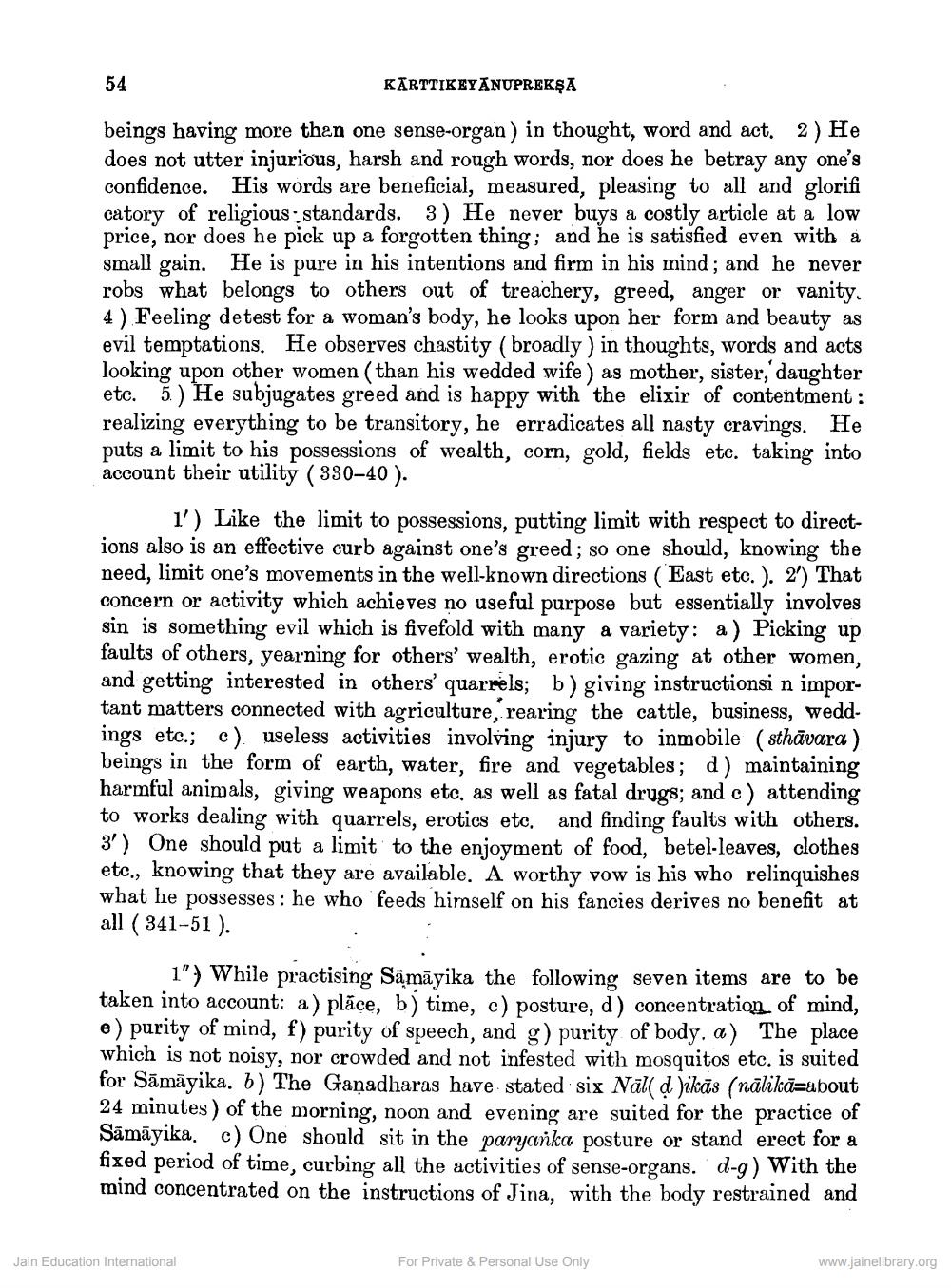________________
54
KĀRTTIKEYANUPREKŞA
beings having more than one sense-organ) in thought, word and act. 2) He does not utter injurious, harsh and rough words, nor does he betray any one's confidence. His words are beneficial, measured, pleasing to all and glorifi catory of religious standards. 3) He never buys a costly article at a low price, nor does he pick up a forgotten thing; and he is satisfied even with a small gain. He is pure in his intentions and firm in his mind; and he never robs what belongs to others out of treachery, greed, anger or vanity. 4) Feeling detest for a woman's body, he looks upon her form and beauty as evil temptations. He observes chastity (broadly) in thoughts, words and acts looking upon other women (than his wedded wife) as mother, sister, daughter etc. 5) He subjugates greed and is happy with the elixir of contentment: realizing everything to be transitory, he erradicates all nasty cravings. He puts a limit to his possessions of wealth, corn, gold, fields etc. taking into account their utility (330-40).
1') Like the limit to possessions, putting limit with respect to directions also is an effective curb against one's greed; so one should, knowing the need, limit one's movements in the well-known directions (East etc. ). 2') That concern or activity which achieves no useful purpose but essentially involves sin is something evil which is fivefold with many a variety: a) Picking up faults of others, yearning for others' wealth, erotic gazing at other women, and getting interested in others' quarrels; b) giving instructionsi n important matters connected with agriculture, rearing the cattle, business, weddings etc.; c) useless activities involving injury to inmobile (sthavara) beings in the form of earth, water, fire and vegetables; d) maintaining harmful animals, giving weapons etc, as well as fatal drugs; and c) attending to works dealing with quarrels, erotics etc. and finding faults with others. 3') One should put a limit to the enjoyment of food, betel-leaves, clothes etc., knowing that they are available. A worthy vow is his who relinquishes what he possesses: he who feeds himself on his fancies derives no benefit at all (341-51).
1") While practising Samayika the following seven items are to be taken into account: a) place, b) time, c) posture, d) concentration of mind, e) purity of mind, f) purity of speech, and g) purity of body. a) The place which is not noisy, nor crowded and not infested with mosquitos etc. is suited for Samayika. b) The Ganadharas have stated six Nāl( d )ikās (nālikā=about 24 minutes) of the morning, noon and evening are suited for the practice of Sāmāyika. c) One should sit in the paryanka posture or stand erect for a fixed period of time, curbing all the activities of sense-organs. d-g) With the mind concentrated on the instructions of Jina, with the body restrained and
Jain Education International
For Private & Personal Use Only
www.jainelibrary.org




